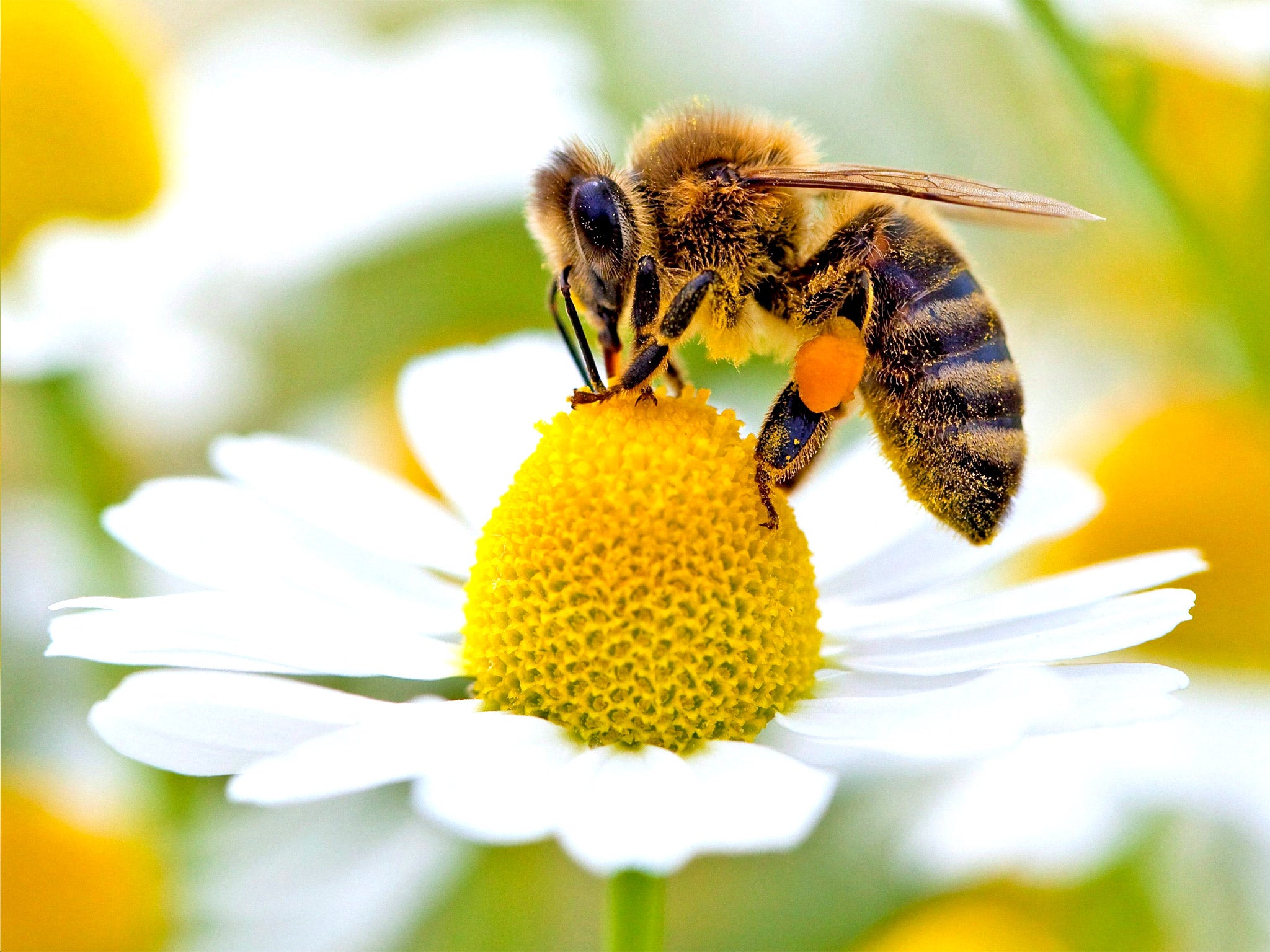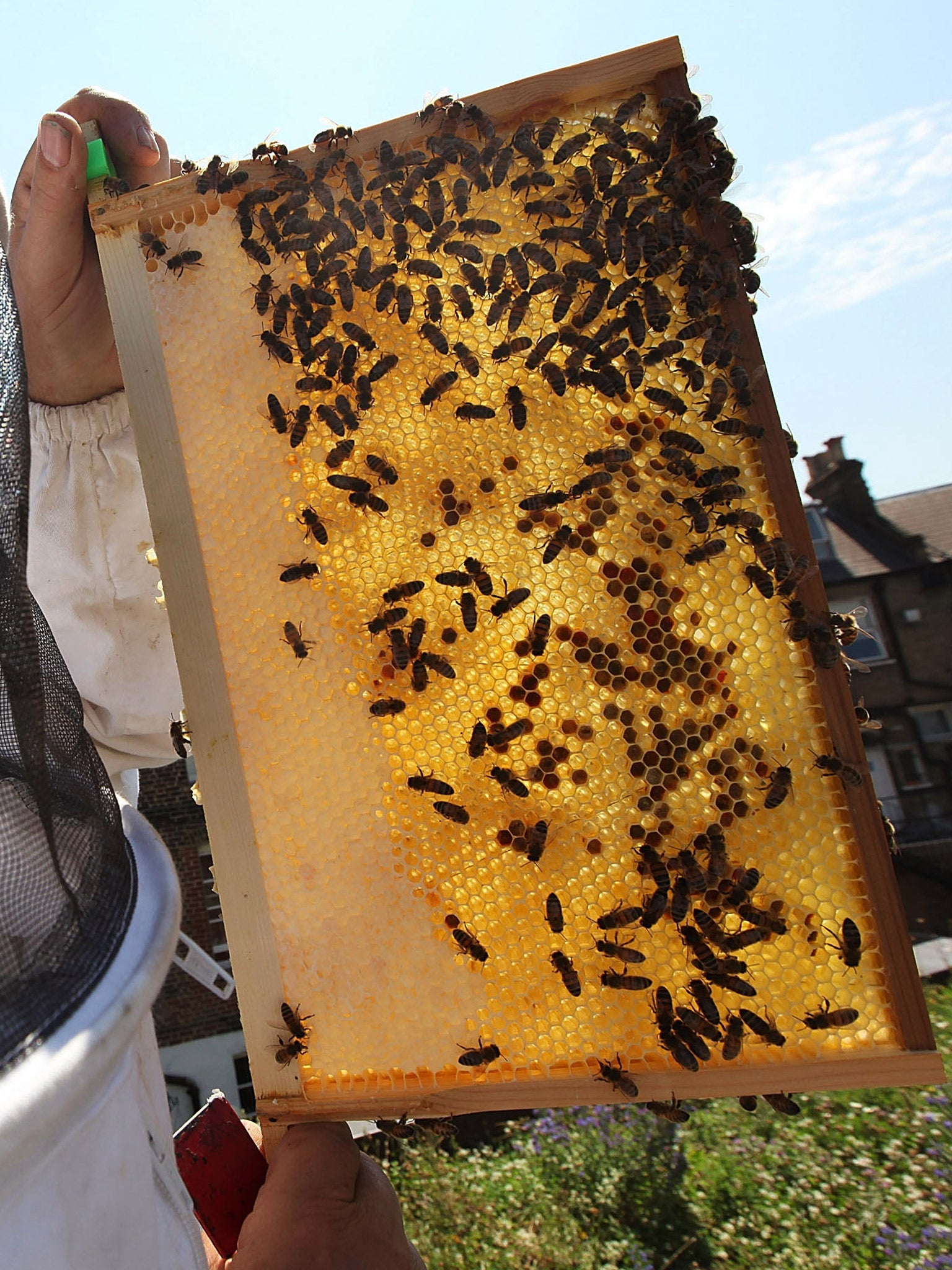Wild bees 'just as important as honeybees' for pollinating food crops
Honeybee colonies around the world have collapsed

Your support helps us to tell the story
From reproductive rights to climate change to Big Tech, The Independent is on the ground when the story is developing. Whether it's investigating the financials of Elon Musk's pro-Trump PAC or producing our latest documentary, 'The A Word', which shines a light on the American women fighting for reproductive rights, we know how important it is to parse out the facts from the messaging.
At such a critical moment in US history, we need reporters on the ground. Your donation allows us to keep sending journalists to speak to both sides of the story.
The Independent is trusted by Americans across the entire political spectrum. And unlike many other quality news outlets, we choose not to lock Americans out of our reporting and analysis with paywalls. We believe quality journalism should be available to everyone, paid for by those who can afford it.
Your support makes all the difference.Wild bees have become as important as domesticated honeybees in pollinating food crops around the world due to the dramatic decline in number of healthy honeybee colonies over the past half century, a study has found.
The largest international survey of insect pollinators has also found that just 2 per cent of wild bee species now account for 80 per cent of global crop pollination – from apples and pears to cacoa chocolate and coffee.
The reliance on a relatively small number of wild bee species comes at a time when honeybee colonies around the world have collapsed. In the 1950s, there were about 250,000 viable colonies in the UK, compared to fewer than 100,000 today.
The scientists warned that relying on the free services of a small number of wild bee species – which they estimated carry out work equivalent to more than £1,900 per hectare of farmland – threatens the future security of food production.
“Human history is full of examples of food crises caused by an over-reliance on a single crop or a dwindling number of species,” said Professor Simon Potts, director of the Centre for Agri-Environmental Research at Reading University.
“In the insect world, we have already seen how the massive decline in honeybees in Britain has led to a reliance on wild bees to do much of the pollination,” said Professor Potts, a co-author of the study published in Nature Communications.
“At one time, honeybees were enough to pollinate most of Britain’s crops. Now there are only enough to pollinate around a quarter of them. If we didn’t have other species of bees to turn to, we would already be facing a food security catastrophe,” he said.
The researchers warned that pressures on bumblebees and other species of wild pollinators due to habitat loss, climate change and the use of pesticides, could change the balance of pollinating insects and threaten food production.
“The few bee species that currently pollinate our crops are unlikely to be the same types we will need in the future,” Professor Potts said.
“It is critical to protect a wide range of bees and other insects now so that, as Britain’s climate, environment and crop varieties change, we can call on the pollinating species that are best suited to the task,” Professor Potts said.
“We can’t just rely on the current starting line-up of pollinators. We need a large and diverse group of species on the substitutes’ bench, ready to join the game as soon as they are needed, if we are to ensure food production remains stable,” he said.

The scientists reviewed 90 previous studies and 1,394 field trials on five continents. The scientists collected data on nearly 74,000 individual bees from 785 different species – representing about 13 per cent of the total currently known bee species.
They found that about 2 per cent of these wild species accounted for almost 80 per cent of all visits to the crops being studied, and that these species were among the most common bees, such as the red-tailed bumblebee Bombus lapidarius found in Europe.
Professor David Kleijn of Wageningen University in The Netherlands, who led the three-years study, said that conservation efforts should be directed at all bees, not just the few that are shown to be economically important for farmers today.
“Rare and threatened species may play a less significant role economically than common species, but this does not mean their protection is less important,” Professor Kleijn said.
The researchers pointed out that relatively simple measures, such as maintaining wildflowers and grass strips at the side of fields and limiting or delaying the use of pesticides, could have big impacts on bee populations.
Taylor Rickets of the University of Vermont in Burlington said: “This study shows us that wild bees provide enormous economic benefits, but reaffirms that the justification for protecting species cannot always be economic. We still have to agree that protecting biodiversity is the right thing to do.”
Join our commenting forum
Join thought-provoking conversations, follow other Independent readers and see their replies
2Comments